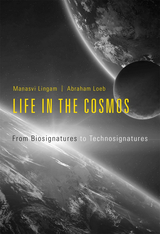
A Seminary Co-op Notable Book
A BBC Sky at Night Best Book
“An impressively comprehensive bird’s-eye view of a research topic that is both many decades established and yet still at the very cutting edge of astronomy and physics.”
—Katie Mack, Wall Street Journal
“Schilling has craftily combined his lucid and accessible descriptions of science with the personal story of those unlocking the finer details of the missing mass mystery. The result is enthralling…A captivating scientific thriller.”
—BBC Sky at Night
“Fascinating…A thorough and sometimes troubling account of the hunt for dark matter…You will come away with a very good understanding of how the universe works. Well, our universe, anyway.”
—Michael Brooks, New Scientist
When you train a telescope on outer space, you can see luminous galaxies, nebulae, stars, and planets. But if you add all that together, it constitutes only 15 percent of the matter in the universe. Despite decades of research, the nature of the remaining 85 percent is unknown. We call it dark matter.
Physicists have devised huge, sensitive instruments to search for dark matter, which may be unlike anything else in the cosmos—some unknown elementary particle. Yet so far dark matter has escaped every experiment. It is so elusive that some scientists are beginning to suspect there might be something wrong with our theories about gravity or with the current paradigms of cosmology. Govert Schilling interviews believers and heretics and paints a colorful picture of the history and current status of dark matter research. The Elephant in the Universe is a vivid tale of scientists puzzling their way toward the true nature of the universe.

A rigorous and scientific analysis of the myriad possibilities of life beyond our planet.
“Are we alone in the universe?” This tantalizing question has captivated humanity over millennia, but seldom has it been approached rigorously. Today the search for signatures of extraterrestrial life and intelligence has become a rapidly advancing scientific endeavor. Missions to Mars, Europa, and Titan seek evidence of life. Laboratory experiments have made great strides in creating synthetic life, deepening our understanding of conditions that give rise to living entities. And on the horizon are sophisticated telescopes to detect and characterize exoplanets most likely to harbor life.
Life in the Cosmos offers a thorough overview of the burgeoning field of astrobiology, including the salient methods and paradigms involved in the search for extraterrestrial life and intelligence. Manasvi Lingam and Avi Loeb tackle three areas of interest in hunting for life “out there”: first, the pathways by which life originates and evolves; second, planetary and stellar factors that affect the habitability of worlds, with an eye on the biomarkers that may reveal the presence of microbial life; and finally, the detection of technological signals that could be indicative of intelligence. Drawing on empirical data from observations and experiments, as well as the latest theoretical and computational developments, the authors make a compelling scientific case for the search for life beyond what we can currently see.
Meticulous and comprehensive, Life in the Cosmos is a master class from top researchers in astrobiology, suggesting that the answer to our age-old question is closer than ever before.
READERS
Browse our collection.
PUBLISHERS
See BiblioVault's publisher services.
STUDENT SERVICES
Files for college accessibility offices.
UChicago Accessibility Resources
home | accessibility | search | about | contact us
BiblioVault ® 2001 - 2024
The University of Chicago Press









